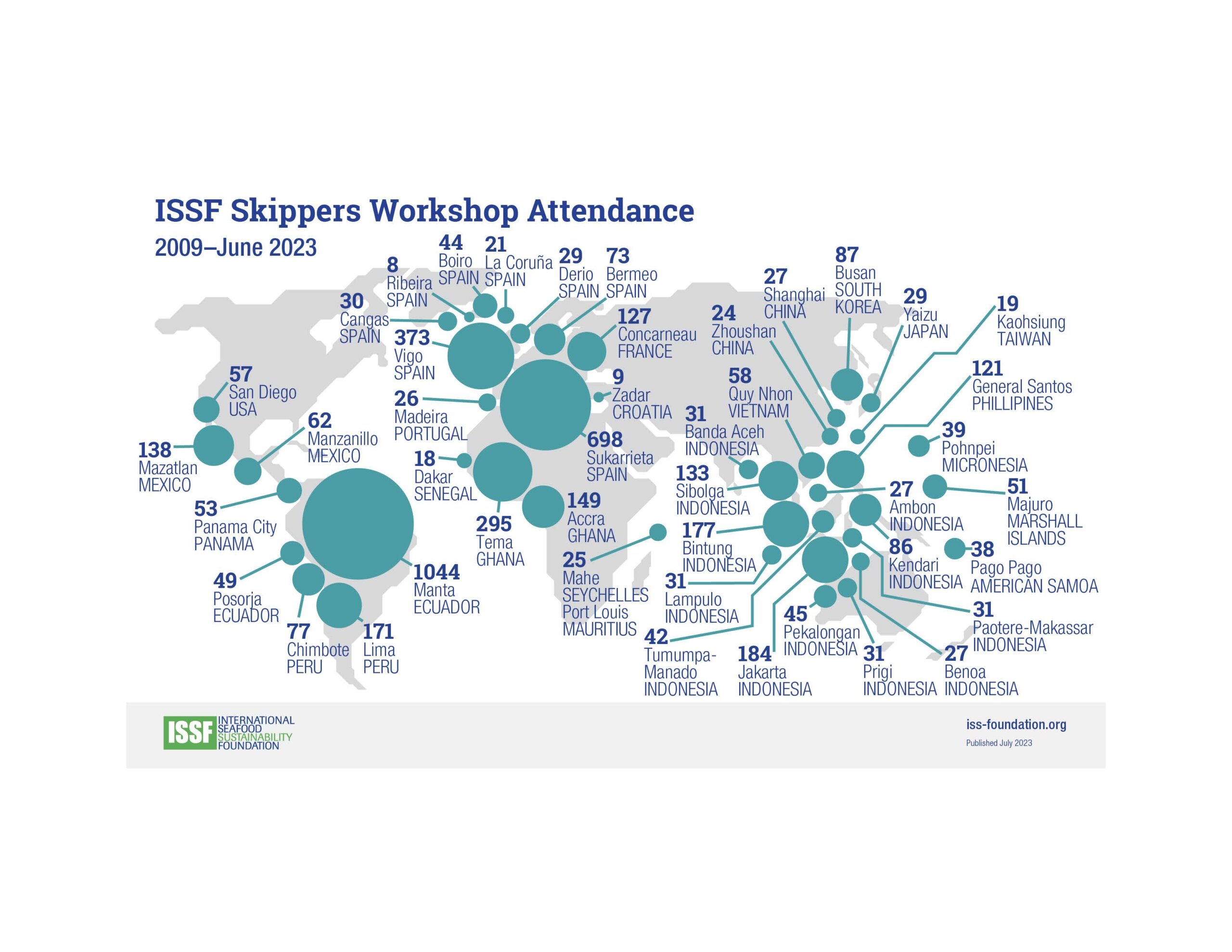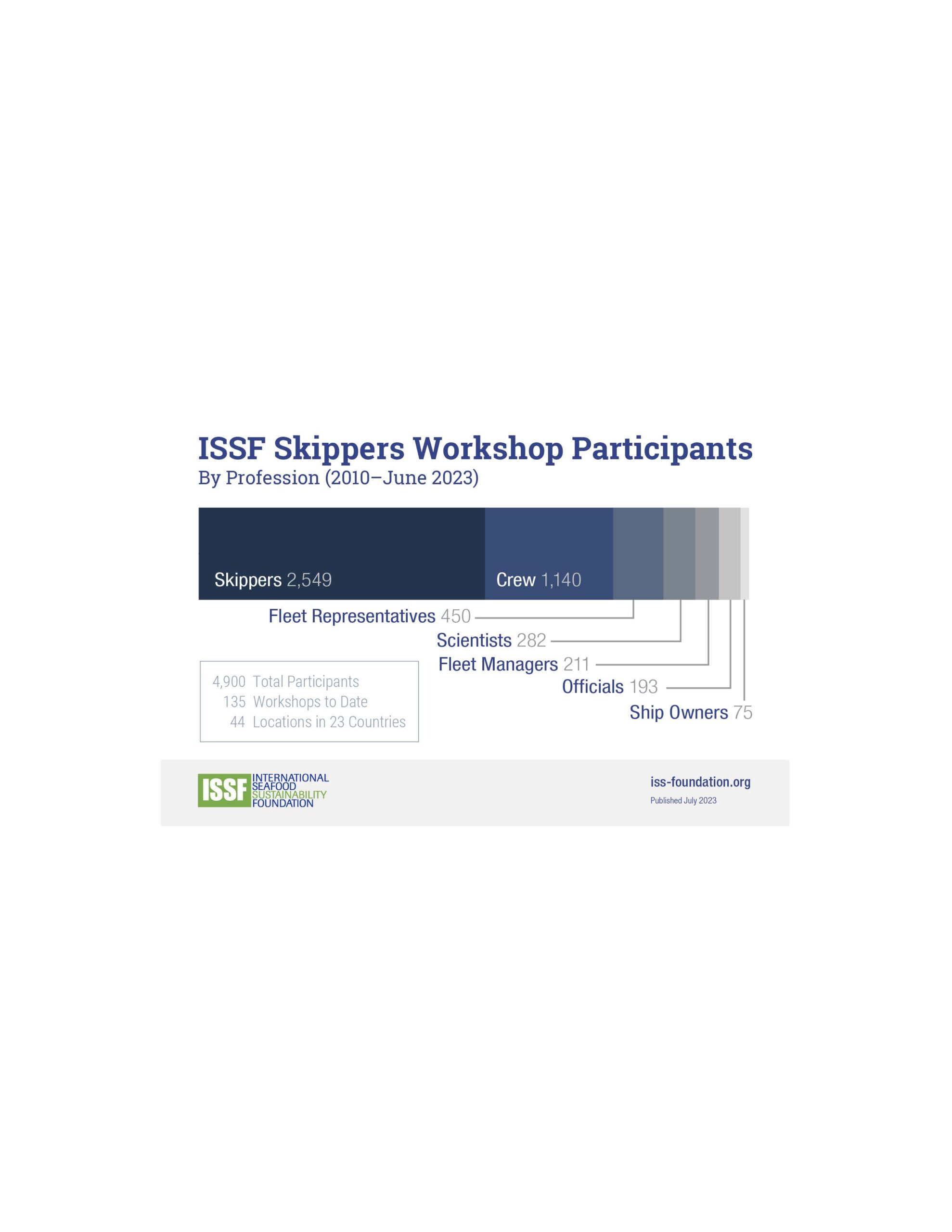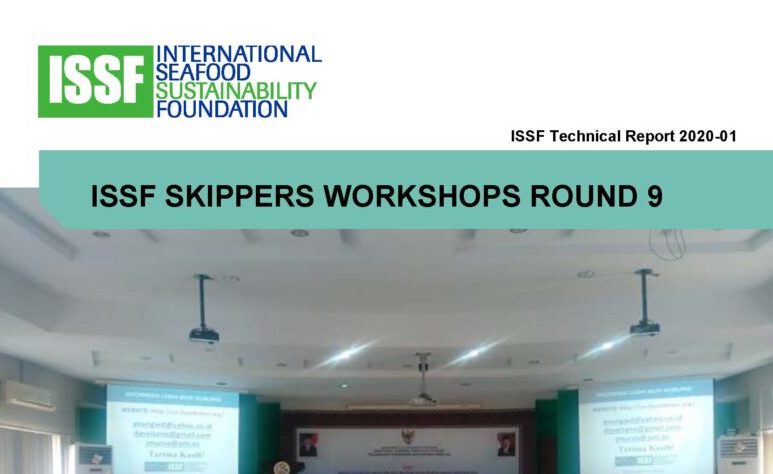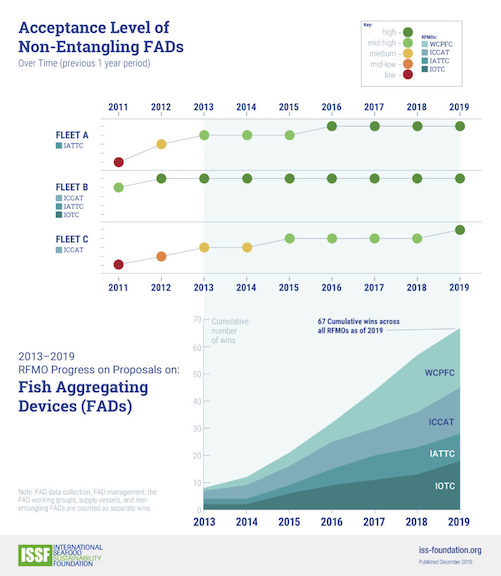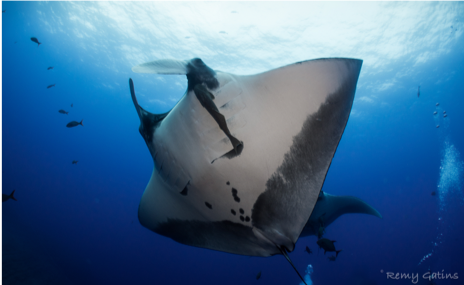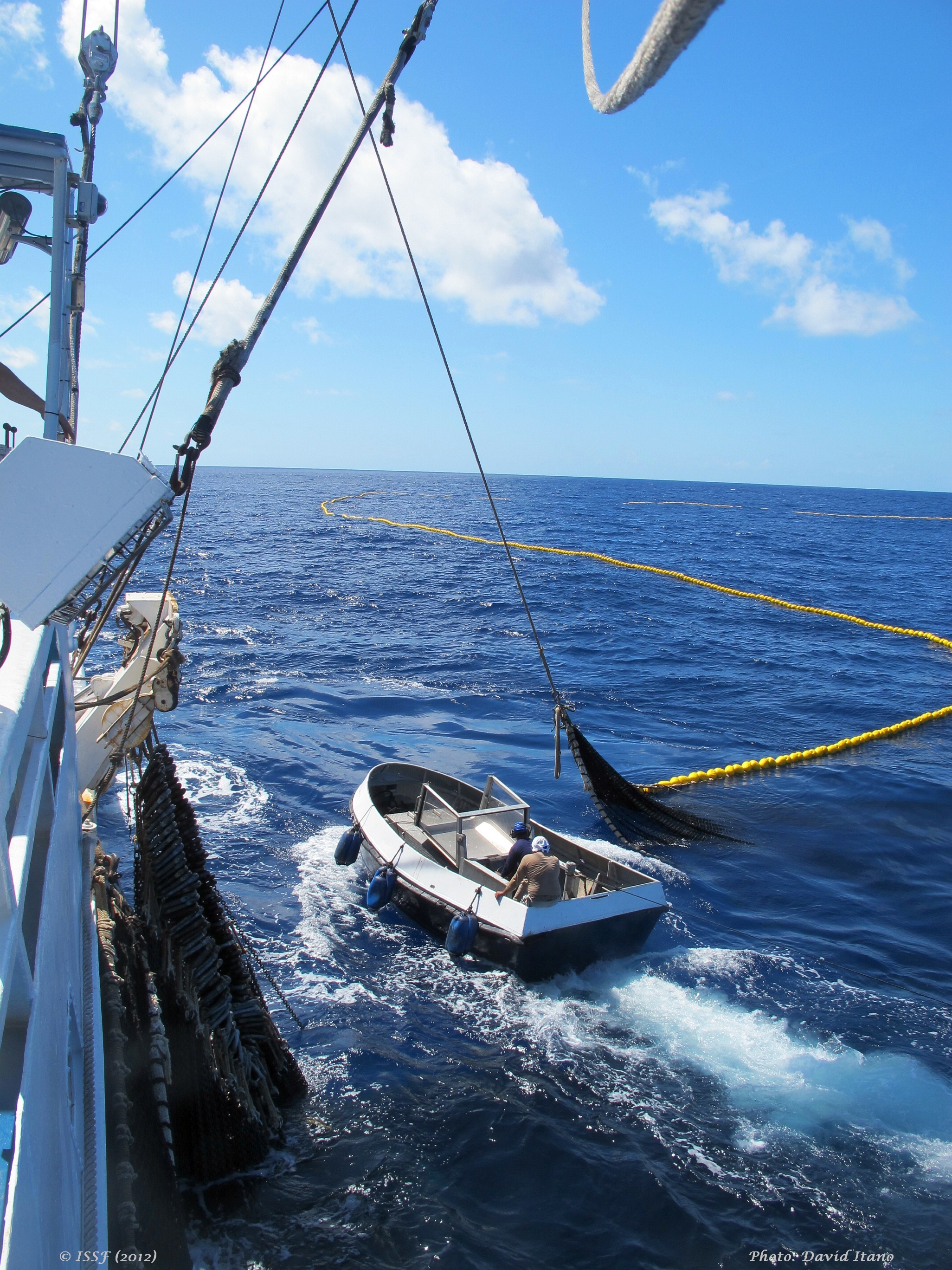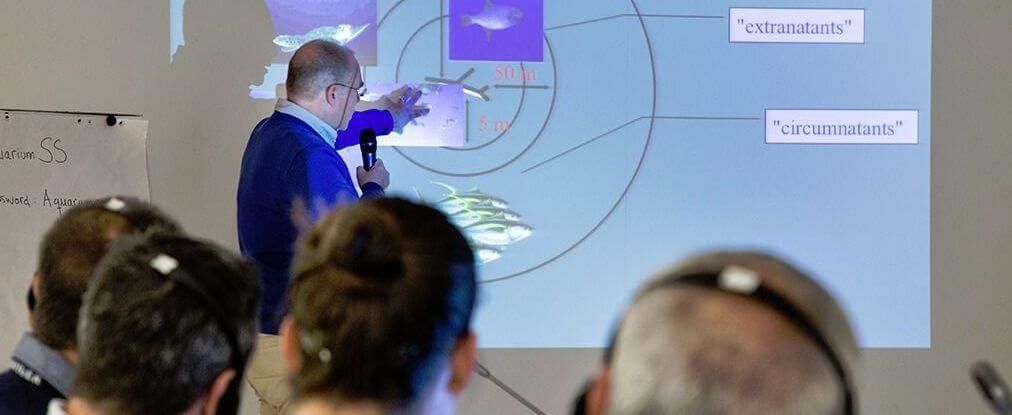
Workshop Topics
ISSF Skippers Workshops enable tuna skippers, fishing masters, and captains to exchange knowledge with fisheries scientists and researchers about best practices in sustainable fishing.
To determine the best ways to avoid bycatch and minimize tuna fishing’s impacts on the marine ecosystem, fishers’ empirical knowledge is as valuable as marine scientists’ knowledge.
In our collaborative workshops, vessel crew can provide direct feedback on scientists’ bycatch-reduction recommendations. Fishers also can offer their own mitigation insights and techniques, including sharing their prototypes for shark and manta-ray release ramps and non-entangling biodegradable FADs.
Our ISSF Skippers Workshops Round 9 report documents fisher ideas and feedback from our most recent workshops.
WORKSHOP FOCUS AREAS & PARTNERSHIPS
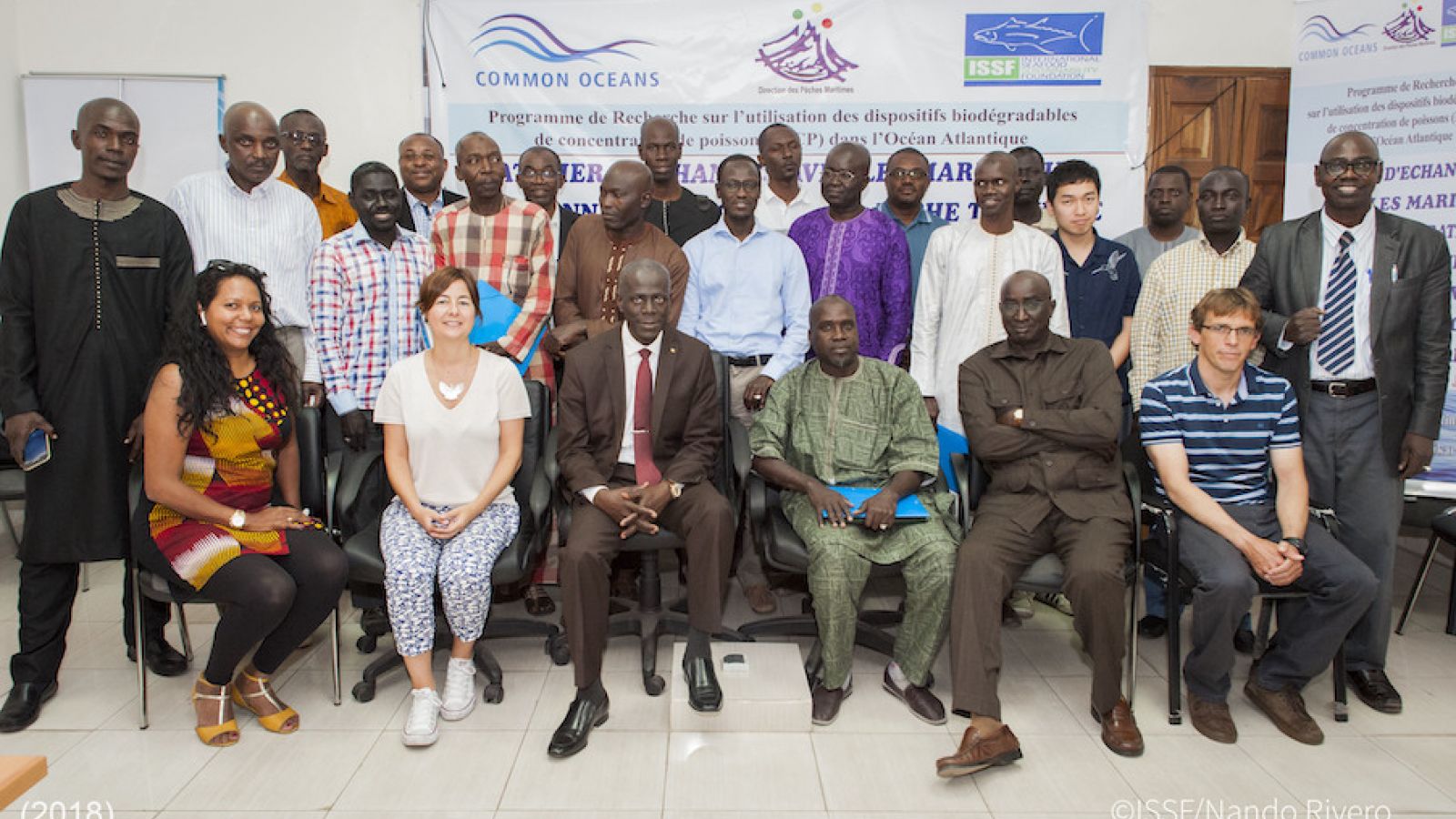
Best Practices for Sustainable Fishing
ISSF’s skippers workshops have focused on sharing information to meet these goals for more sustainable tuna fishing:
- Avoiding or reducing bycatch in tuna fishing operations, through new technologies or practices
- Learning best safe handling and release approaches for sharks, turtles, manta rays, and other “non-target” species incidentally caught
- Using non-entangling and biodegradable FADs to reduce shark and turtle bycatch and mitigate the impact of FAD beaching events
- Developing “bycatch release devices,” including equipment designed by fishers, for protecting and releasing accidentally caught sharks, manta rays, and other species
- Researching ways to prevent the capture of both undesired species and unwanted sizes of tuna (including through acoustic discrimination of tuna species and sizes before the net is set)
- Identifying fleet fishing strategies and their effects on target tunas and ecosystems
Workshops also can be customized for specific fleet needs.

Vessel & Tuna Company Partners
ISSF reports have explored the benefits of fisher-scientist interactions at workshops and onboard purse seines. These tuna vessels and organizations, for example, partnered with ISSF on at-sea bycatch-reduction research projects in 2011-2017:
- F/V YOLANDA L (INFRIPESCA)
- F/V VIA SIMOUN (NIRSA)
- F/V TORRE GIULIA (INDUSTRIA ARMATORIALE CFTO)
- F/V CAPE FINISTERRE (TRIMARINE)
- ALBATUN TRES (ALBACORA)
- F/V CAP LOPEZ (TTV)
- F/V MILENA (NIRSA)
- MAR DE SERGIO (ALBACORA)
- F/V LJUBICA (PESQUERA MIRIAM)
- INPESCA fleet (6 purse seiners), 2017 biodegradable FAD tests
Engaging with sustainability-focused seafood companies and vessels is central to ISSF’s collaborative model.
SKIPPERS WORKSHOP RESOURCES
Vessel Lists
ISSF has created four searchable vessel lists to help improve transparency and traceability in the seafood industry:
- ProActive Vessel Register (PVR)
- Vessels in Other Sustainability Initiatives (VOSI)
- Record of Large Scale Purse Seine Vessels
- Tuna Vessel IMOs and Other UVI Numbers (IMO/UVI)
Learn about the value of these tools for vessel owners, seafood companies, and fisheries managers.
